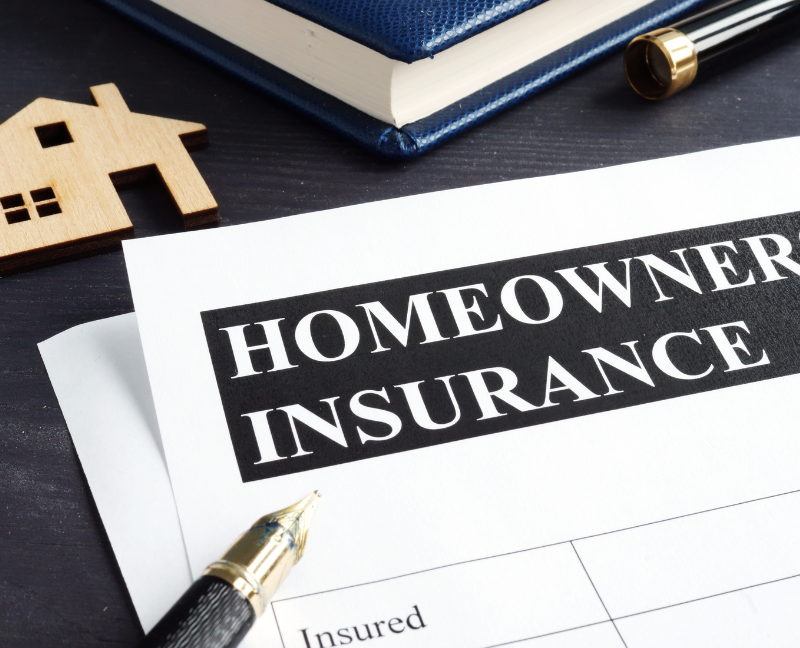"Less is more" provides a practical alternative in a society where distractions and clutter are widespread. The minimalist lifestyle fosters a deeper and more meaningful journey by removing excess and highlighting essential elements.
Prioritizing personal growth, relationships, and experiences over material possessions and superficial desires characterizes the minimalist lifestyle benefits.
As individuals increasingly strive to simplify and scale down their living environments, this minimalist lifestyle mirrors a broader cultural transition towards simplicity and sustainability.
If you're contemplating adopting a minimalist lifestyle, here are several reasons why you might be inclined to explore its minimalist lifestyle benefits.
Reducing the amount of things and activities you engage in is a necessary part of leading a minimalist lifestyle. This will allow you to live a life that is easier to access and less stressful. When there are fewer things to worry about and work on, you will have more time and attention to dedicate to the important things.
You can save money by becoming minimalist in a variety of ways. You can save money by purchasing fewer items that you don't need. Reducing the size of your living area is another way to reduce your housing expenses. You also require less space to store your belongings when you own fewer of them.
Minimalist living is another way to lessen its impact on the environment. You use fewer resources and make less waste when you make fewer purchases. Reducing your energy use and carbon footprint is another benefit of downsizing.
It is not enough to own fewer things to practice a minimalist lifestyle; one must also prioritize experiences over tangible goods. You can cultivate deeper ties with the people in your life and construct more significant memories if you concentrate on experiences rather than stuff.
Anxiety and stress can be brought on by feelings of being overwhelmed by clutter and mess. Make your environment more serene and calming by minimizing the amount of clutter in your life and streamlining your daily routine. This can be accomplished by reducing feelings of stress and worry and boosting your mental well-being,
If you have fewer things that could distract you, you can concentrate more on the essential things you need. This may help you become more creative and productive, ultimately allowing you to accomplish your objectives efficiently.
In addition, adopting a minimalist lifestyle can assist in developing gratitude. When you have fewer experiences and belongings, you create a greater appreciation for the things that you do have. The cultivation of a sense of gratitude and contentment in your life can be facilitated by doing this.
Conclusion
Simplifying your life, placing a higher value on experiences rather than material belongings, and decreasing your influence on the environment are all ways to make your life more satisfying and meaningful.
Therefore, if you are experiencing feelings of powerlessness due to clutter and distractions, consider having a minimalist lifestyle and observing how minimalist lifestyle benefits might improve the quality of your life.
Making a house as attractive or stylish as possible is not the only goal of house flipping. It's about making the biggest return possible on each property -- just like real estate.
Although the rehabilitation costs of a distressed home may be covered by your fix-and-flip or bridge loan, funding is not the same as free money. One of the most important skills to have while learning how to flip a house is knowing how to use your renovation budget wisely. Performing the greatest house improvements at the lowest possible cost to optimize the home's worth should be the main goal.
Research and prepare before pulling apart a property to restore. Check local housing prices to see what buyers would pay and ROI. Therefore, check local home valuations and sales. After understanding the local real estate market, you must have home improvements. Work with a Realtor who knows your neighborhood to make wise renovation decisions.
Whether you're doing a major or minor project, these seven home improvements will increase your property's value.
Kitchens are vital for real estate investors trying to increase property value. It holds particular areas in people's hearts—a warm, inviting kitchen calls to us on some level.
Fully Renovated: Consider whether the floor plan is modern or efficient before removing all cabinets and fixtures in a complete renovation. Before buying granite or marble counters, try quartz or synthetic stones.
Specific Updates: Kitchen renovation ROI may be low. Consider darker stainless steel for a bolder design. Compare appliances with "provable" efficiency claims. A kitchen with old but serviceable cabinetry can be revived with paint.
Bathrooms show age second only to kitchens, and they always figure on lists of the most valuable home improvements.
Fully Renovated: Installing water-efficient and space-saving sinks and toilets can free up a room. Replace linoleum with sharper flooring to improve. Replacing the shower tile and tub can brighten a dull bathroom.
Specific Updates: Upgrade faucets, knobs, and other sink and bathroom fixtures. Another inexpensive upgrade that may transform a bathroom is cabinetry hardware. Home improvements can be cost-effective without a sophisticated updated floor plan or flashy installations.
Updates like new paint and flooring may seem simple, but they can increase your home value. The most significant effects are sometimes achieved with the simplest upgrades.
Fully Renovated: Some older homes have carpet and aged flooring. Wood is attractive, but you have other options. Bamboo flooring costs less and looks identical. Painting the whole house may renew it.
Specific Updates: Consider installing carpeting instead of hardwood or bamboo flooring in the upper level of your home if you conclude that new flooring is required.
It's essential to make an excellent first impression. The most valuable house upgrades are not limited to the home itself; they extend beyond the home itself.
Fully Renovated: The house's exterior ought to have a spotless appearance. It can be wise to spend money on complete landscaping, which includes lush green lawns and mulched gardens. Remove dead grass with resodding to add greenery.
Specific Updates: The entrance door can look cozy and welcoming with potted plants. Although maintained with few gardens, the backyard should be pleasant and constantly mowed. Design the front yard to draw people to the house. The backyard is just a starting place for the new homeowner to design their ideal yard.

One of the simplest ways to increase the value of your home on a tight budget is to replace the lighting fixtures in your house.
Fully Renovated: An elegant look can be achieved with recessed lighting. It makes a good buzzword for selling the property. Dimmer switches, which are inexpensive and easy to install, provide elegance. Always turn off the room's breaker before touching cords.
Specific Updates: Wattage and color temperature matter when replacing bulbs. A cooler bathroom can look clean with warmer kitchen and living room colors. Your flip may sell for more with minor stylistic changes that complement the home's style and the buyer's market.
The ability to impress buyers with accurate data is a significant benefit of energy-efficient upgrades. It will show them how better your property is than others.
Fully Renovated: Renovations should begin with new insulation. Average houses lose energy from a three-foot-square hole in the wall. Updating windows can also improve energy efficiency.
Specific Updates: Use LEDS in your home or advanced technology to turn your property into a smart home. This helps promote energy efficiency, lifetime, and electricity bill savings to buyers. Start with rebates and free energy audits—there are many government-funded energy efficiency programs to boost house value on a budget.
An expansion will never be a first step when flipping a home. Additions increase livable space but rarely return on investment.
Fully Renovated: Check out surrounding homes that have added extensions before hiring an architect. You can assess the cost-to-return ratio by looking at local sales to evaluate if the extension is worth it. Knowing how an extension will influence your budget from the start is crucial.
Specific Updates: With prefabricated outbuildings, installation is cheaper than ever. Increasing living space to welcome guests, rent on Airbnb, or store products is a significant house improvement, but it's expensive. Consult your realtor to verify a check that covers more than expenses.
Conclusion
Expert house flippers and rental property investors may assess a distressed property and determine what modifications yield the highest profits and how much to flip it for. First-time flippers should engage an experienced general contractor to manage repairs, but get multiple quotations and don't overdo it.
Selecting the best time of the month to close on a house may seem like a low priority among the many challenging decisions involved in purchasing a home. If everything stays the same, many will close at the end of the month to save mortgage interest.
However, for some people, existing leases or HOA payments on the new home may sound complicated. In this post, we'll discuss the basic things you need to know when choosing the best month to close a home.
Your mortgage payments are due at the start of each month. Unlike most mortgage payments, your initial payment is due the day after the first month after closing. If you close on February 1, your first payment is April 1. Tons of advice seems to suggest that closing on a house early in the month can result in a month's worth of "free" housing. However, it isn't like that.
Early closing gives you a month without a mortgage payment. However, you're paying mortgage interest, so your total mortgage payment will be the same as if you closed later in the month. You'll pay hundreds of dollars in interest for the first month of occupancy, but your house will be paid off the same day as the alternate-universe version of you, who closed later.
Choosing the best time of the month to close on a house without a mortgage payment may be enticing if you're suffering cash flow concerns, and scheduling a closing early in the month may be easier and less stressful. It is important to remember that these conveniences come at a significant cost.
Pros
Cons
Closing later in the month may be worth it; however, there are also other factors to consider, such as:
If you close late in the month, several homeowners associations charge more. Closing early may save you more in interest than these additional expenses. If you're moving into a home with them, HOA fees are worth considering, but they're unlikely to change your mind about closing early.

The seller often pays the buyer's closing costs in a buyer's market. These closing costs usually include early closing interest. This indicates that the buyer has no drawback in getting an early closing, provided the seller offers to pay for the transaction. If so, ensure that your closing costs include interest.
Renters might time closings to avoid extra rent. When calculating, include the additional interest you'll pay if you close early in the month to avoid paying more rent.
If you need to move in by a specific date to save on rent, closing at the end of the previous month is better than the beginning.
When it comes to scheduling, refinances are typically significantly simpler. Your initial mortgage payment will not be delayed or incur extra interest. However, there is the problem of keeping interest payments from happening simultaneously. If you're refinancing with the same lender or not for your primary house, you should be fine with closing date scheduling.
Refinancing with a different lender will delay funding for three days due to a rescission period. You won't pay more for a 3-day delay, but you may pay more interest if it pushes the old loan payback too close to the weekend. To avoid this, sign your docs on Tuesday or Wednesday. Avoid Mondays unless your escrow agent can wire the loan off that day.
Conclusion
Closing later will save hundreds of dollars for most house buyers, though there are a few complicated factors to take into account.
For good reason, the end of the month is the busiest period for shutting; although closing during "rush hour" might seem inconvenient, your wallet will appreciate it. Despite the rush, you should carefully list everything you will need to bring to the closing and make sure you have all your documents to avoid last-minute issues.
Get exclusive real estate tips delivered right into your inbox. Click this link to join for free!
Every agent needs to have a lead list. Its purpose is to provide you with a compilation of potential customers you can contact to generate business. Network referrals, previous customers, and friends and family members could be among them.
If you're a new agent, your lead list may be blank, but everyone starts somewhere. This post will give you ideas on creating a lead list to help you launch your career as a real estate agent.
Knowing your target market isn't a direct way to generate leads. Still, it may help you focus on the leads that are most appropriate for the business you run. Determine your target market, location, and the kind of homes you wish to sell.
Make connections with coworkers, friends, and family. Inform them of your decision to start a new career. Find out whether they are aware of anyone who would be interested in purchasing or selling.
Organize the contact details of your clients, prospects, and influential people. A good real estate CRM makes this easy as updates and reminders can be scheduled regularly.
Events offer great networking. Meet prospects and professionals who can refer clients at Chambers of Commerce and real estate conventions. Prepare business cards to distribute at events and collect as many of the business cards as possible in your database.
Agents may buy database leads from lead generation companies. Make sure that you research the business before buying. Lots of companies give unqualified leads and going through them will reveal old leads.
However, companies can't guarantee exclusive leads and other agents may have contacted your prospects. They may have signed elsewhere. Nonetheless, lead sheets can still be profitable. You can buy lead sheets once or subscribe to a service to collect them. The key is carefully choosing which lead-generating companies to work with.

Social media marketing generates excellent leads. It's crucial to master each social media network.
Follow these guidelines:
They say the best things in life are free, and you can take advantage of this by giving a free real estate workshop. They can learn real estate-related matters in exchange for their contact details, which you can add to your lead list.
Free resources are strategically like free workshops. Offer whitepapers and other downloads. Give a free online home assessment. Ask for contact info to access services. Build your lead list quickly using this method.
Many use this method to avoid agent fees. They can keep commissions. This house-selling approach seems reasonable. Many find it too much trouble. Finding buyers, holding open houses, and handling paperwork can be challenging. Give FSBOs a call and tell them how you can help. If you have a lead list, you can use that to remain in touch. Later, they may need your help.
FSBOs closely resemble FRBOs. Instead of selling, the owner rents. Except that, they may face FSBO-like challenges. Finding renters may be challenging. Property management would also be difficult. Contact them to offer renter-finding assistance. You can also include property management.
This one presents a dilemma. You cannot have clients if you lack leads. Also, it is impossible to hold an open house without clients.
However, agents with some prior experience will find this strategy helpful.
Make sure you provide a sign-in sheet for those attending your first open house. You can show them a similar home that would be of interest to them even if they may not want to buy the one you are now showing. You can, in any case, add their contact details to your list of leads.
Attending events is a fantastic method to meet new individuals. By hosting events, you can network even more effectively. You can stand out as a leader in your neighborhood by focusing your event on a local cause. The best part is that there is no limit on the events you can host. Doing it consistently can help you become a neighborhood real estate expert.
Expired listings usually occur when a real estate transaction goes wrong. It's possible that the sale of the house or the deal is through before the agreed-upon deadline.
Many times, home sellers with expired postings may still wish to sell. However, they fear running into the same challenges if they try again.
As an agent, you must update your lead listings by adding expired listings. You may use this to contact sellers and discuss what went wrong and what you can do to help improve the situation, motivating them to re-enter the market again.
Those going through a divorce frequently may have to sell or relocate swiftly. A divorce attorney can help provide worthwhile leads by connecting you with divorcing spouses needing an agency.
When someone dies and leaves no will naming an heir, their property is listed under probate. A real estate representative will be enlisted to document the house and give prospective purchasers a tour. Collaborate with a probate attorney to guarantee you are the first agent on the list.
Lenders and banks will request broker price opinions (BPOs) from homeowners experiencing payment defaults. They signify that the lender intends to hold a property foreclosure.
Being informed about BPOs can help agents in two ways:
If you want to be the first to know about homes on the edge of foreclosure, look through web listings and sign up for databases maintained by BPO.
Using real estate postcards to advertise your business and seek consumers is effective. They are inexpensive and profitable. When you mail, people may contact you to join your lead list. If all goes well, they may buy or sell.
Although it might appear far-fetched, this strategy has the potential to work. Follow #wedding, #newborn, and #engagement using social media. Follow city and neighborhood hashtags, especially those related to these terms, to validate their relevance.
Expectant or engaged couples may hunt for a home shortly. Congratulate them and offer the opportunity to locate them a home when they're ready. To follow up, use any contact information you come across. When they're ready to look for a house, you will be the first person they think of.
Although knocking on doors requires a lot of work, it's a great way to get leads. Visit neighborhoods with high home sales door-to-door. Inform homeowners of sales and offer house evaluations. They may sell after being astonished by the value of their home.
Door knocking is challenging because many individuals are out and will slam doors. However, it's cheap and could yield high ROI. It will generate leads for your list.
Another tricky lead-generation method that can pay off is cold calling. For the most accessible phone numbers, use an old-fashioned phone book or search online for local contact information. Your calls will go better with a script that promotes your business.
You can have a lead list of interested contacts. Use FSBO, FSRO, and expired listings for warmer cold-calling. To do this, you need leads.
Becoming a thought leader in your industry can build your network and have a lead list. Signing up for PR email lists is the easiest. These platforms seek expert quotes constantly. Scanning them for contributions takes minutes.
Additionally, you can submit a guest blog request to reputable websites like Urban Land, BOMA, or Forbes. It will be quite easy to gather leads once you establish your brand.
Lead generation might be difficult for rookie agents. You may make a list that advances your company by using the advice in this article. Which are you going to incorporate into your marketing plan?
Buying a home is typically the most costly investment a person makes in their lifetime. Some lenders require a 20% down payment to give better mortgage rates. In addition to your mortgage and down payment, hidden costs when buying a home sometimes surprise buyers, especially those already struggling.
So what are the hidden costs of home buying?
Closing costs, additional hidden costs when buying a home, and the requirements of mortgage lenders, to name some, can pile up for buyers, particularly for individuals with little to no real estate industry experience.
When preparing your budget for your upcoming home buying, you should look into the possible hidden costs associated with homeownership.
Don't worry! Hidden costs won't startle you, and you can reduce unnecessary expenses.
A typical period of 45 days is required to close a house. Throughout that approximately two-month interval, several costs accumulate, including the following:
A seller's insurance is earnest money if you withdraw from the agreement. It's usually 1-3% of the home's sale price and due three days after the seller accepts and signs your offer. If you cancel the house purchase, you lose your earnest money. You keep it if the vendor backs out. If the sale fails for a contingency, you save the money.
Your lender will verify that the seller's home value is accurate. Here, you pay for a home appraisal. This task cannot be price-shopped because an appraiser will be assigned by a designated appraisal management company (AMC).
The following variables will affect the overall cost of your appraisal:
Even though your lender doesn't require a home inspection, 85% of homebuyers seek one to avoid significant structural issues. Scheduling a home inspection costs money, but it saves on repairs over time.
Home inspection costs depend on square footage, cost of living, and housing market conditions, just like appraisals. Prices average $300–$400; however, they vary based on where you reside and what you buy.
On your closing date, nothing compares to going down to take possession formally and then realizing you needed more time to be ready for the long list of closing expenses. The following costs need to be covered before you may become the owner of your home:
Your lender charges a loan origination fee for reviewing, underwriting, and approving your mortgage. At closing, you'll owe $2,000–$4,000 on a $400,000 house due to loan origination fees of 0.5% to 1%.
Your closing meeting requires proof of homeowners insurance to protect your investment. Before you can sign off on your mortgage, lenders usually want you to have paid for an entire year's worth of insurance.

You'll also pay your new home's property taxes at closing. The monthly payment is prorated based on how long you own the home this year. The valuation of your new house and the current tax rate will determine your property tax bill. Your tax rate is affected by the state, county, and city in which you reside.
Earnest money is held in escrow while parties negotiate the sale. Future lender uses of accounts will change. Monthly mortgage payments go into escrow and are operated to settle property taxes and homeowners insurance.
Third-party escrow companies maintain and operate your account, which your lender draws from. Companies charge 1-2% of the sales price to put it up. Usually, the buyer and seller split this expense, but they might negotiate this in the original offer.
Other factors affect your home buying cost, depending on where and how you buy. These charges don't apply to every transaction, so often surprise homeowners:
It takes more than joining the club and following the rules to buy a house in a homeowners association area as its benefits require HOA fees.
Homebuyers often overlook the HOA transfer charge. This fee covers HOA administrative expenditures when a home changes ownership.
More buyers are covering this cost to make their offer more appealing. Remember this cost as a negotiation strategy in a hot market, and be prepared to pay it if it's part of your final offer.
Mortgage insurance mitigates lenders' risks when they allow no-down-payment purchases. Small down payments increase lender risk, but mortgage providers know that not everyone can afford one. Rather than refusing mortgages to applicants who lack the necessary funds, lenders impose a tiny cost on mortgage insurance.
PMI is frequently required on traditional mortgage loans with less than 20% down. It appears as a monthly mortgage fee until you've paid off 20% of your home's value. FHA loans without a 10% down payment require a mortgage insurance premium (MIP).
Looking for a new home in Indiana but don't know how to get started? Our team at RE/MAX Advanced Realty is more than happy to help!
From answering your inquiries, such as the hidden costs when buying a home and even after you buy the property, we're here to guide you!
Leave a comment or call us at 317-316-8224 to get started.
The conditions of your life, as well as your financial situation, such as the quantity of equity you have in your house, your ability to finance a new home, and all of the fees associated with selling your home, should be taken on what to consider when selling a home.
It is also essential that you have a concrete knowledge of the local housing market and how its seasonal changes can have an effect on your objectives.
If you are wondering "what to consider when selling a home," the following are some essential questions to ask before actually putting your property on the market.
Interesting Reads:
Below are a few critical questions to ask before selling your home, and answers that might help you:
Most real estate agents evaluate recently sold properties in your area that are comparable to yours to determine the worth of your home. It's common to refer to these comparable properties as "comps." By comparing the sales prices of various comparable properties, you can get an idea of the price range that potential buyers of your property may be willing to spend.
When looking for comparable properties, examine the number of rooms, baths, square footage, and unique features. No two properties are the same; thus, you must alter each element individually, which is difficult for each comp. Luckily, computers are excellent tools to use for this task. Utilize the home's value tool to determine value using recent comparable house market data.
Want to know the value of your home? Click this.
Home equity should cover your mortgage, selling, and relocation expenditures. Many people wait to sell until they have enough equity for a down payment on a new house.
Note: You have negative equity if you owe more than the home is worth. Being "underwater" on your mortgage is frequent. Selling your property for far less than you purchased is usually a last resort.
If you want to sell your property, what you need to do first is to calculate your equity. Once you know "how much of your home you own," you can assess if your equity will cover selling charges.
Many property sellers focus on the 5-6 percent agent commission. However, selling a property can cost 10% of the transaction price. Additional costs include seller concessions, closing fees, repair costs, and property overlap pricing if you can't sell and buy. On top of that, you have to consider the time you'll spend and the amount of stress you might undergo.
Understanding your monthly income vs debt payments is crucial to qualifying for a loan. Many lenders follow the 28/36 guideline, which limits housing expenses to 28% of gross income and total indebtedness to 36%.
Check your relocation timetable and how it will affect your aims to decide if you should sell. In case you didn't know, sales delays can cost money. It might delay a project, cost storage or temporary accommodation, and require home maintenance.
One of the best indicators of property sale time is Days On Market (DOM). This statistic records how long a home is on the market, from listing to contract. Understanding market factors like interest rates, home sales, and home price appreciation might affect your goals and timetable.

As a seller, you must disclose house issues to buyers. No repairs are required, but you may need to price your home depending on the cost of essential repairs or offer a concession to the buyer to perform them themselves.
Large renovations may raise your home's worth before selling, but not all will. Home improvements and upgrades have different effects depending on the market and house value.
Selling your home traditionally is an active process, meaning you have to do a lot of things. This includes preparing your property for sale, working with an agent, making repairs and changes, showing your home, and negotiating with purchasers. You don't know when or if a good deal will close.
There are many ways to sell your property and to choose which one suits you, you have to consider your time, resources, and energy to decide your readiness.
In traditional sales, a real estate agent guides you. Besides marketing the home, a real estate agent can communicate with the buyer's agent and handle sale paperwork.
Conclusion
These are just some of the questions you should ask yourself before marketing your property, and surely there will be more as you continue your home-selling journey.
If you need a guide or expert advice on how to do this easier and quicker, our team at RE/MAX Advanced Realty is here to help!
Call us at 317-316-8224 or visit our website today!
If you are selling your home in Indiana, you may require the services of a home inspector to conduct a home inspection as part of the selling process. Alternatively, the buyer may request a home inspection for their peace of mind. Buying a house is, after all, a significant financial investment.
Getting ready for your move will be easier if you have a home inspector visit your property first. But you need to know about home inspection preparation before you begin home inspection. It's better to spend a little more money fixing things before selling than to have the buyer back out or issue a summons for repairs.
This blog will give you tips on how to prepare for home inspection. Home inspection preparation might help if you want an excellent and smooth home-selling process.
Here are five helpful tips on home inspection preparation:
You should clean the home before an inspection. Though some people ignore it, it is a simple yet essential step. People may assume that a cluttered or dirty home indicates that those who live there are not taking proper care of it. Maintaining a clean home will demonstrate to the inspector your concern for and maintenance of your asset.
Give yourself an hour ahead to ensure you are prepared for the inspector. It's well known that home inspectors arrive on time, if not early. Since most home inspectors begin their work on the outside of the home, you should not be startled if the inspector wanders about your lawn before they ring your doorbell.
The utilities in your house, such as the furnace, air conditioning, dishwasher, and stove, will need to be inspected by the home inspector. Carefully switch the power back on in time for all appliances to function properly by the time the inspector arrives if you have already moved out and turned off the electricity.
If these are not checked, the inspection cannot be finished, and this could lead to the need for a second house inspection or possibly the buyer withdrawing their offer. To allow the inspector to check for grounding and reverse the polarity of your utilities, be sure to leave the power on.
Clear access to your furnace, water heater, and air conditioner for a home inspection. Remove boxes and other storage around these utilities to provide the inspector with a good workspace. Inspectors won't move anything in their way, which could damage your items or demand a second visit, costing you money.
The inspector cannot inspect items like the water heater, furnace, or gas stove if the pilot light is not ignited. They will not start the pilot light for safety and liability. They won't check the necessary utilities if the pilot light is out, and the selling process will be put on hold until they have had a chance to inspect them thoroughly.

Remember that the inspector will require easy access to your attic, basement, and garage. Take note that the first tip to prep for home inspection above is essential and advisable.
Make sure your basement is clean by vacuuming spider webs and rodent droppings. Also, make sure that you properly store any valuables in these areas.
The inspector will need keys or remotes to access your garage and outside utilities, including electricity boxes and sprinkler systems. Leave keys for your outbuildings, too. Your property inspector must inspect every corner before leaving.
Your home's outside will also affect the inspector's impression as you clean inside. Clear away yard debris for the inspector to evaluate the house's foundation. Remove trash cans and storage boxes from the house to help the inspector and streamline the inspection.
Give the inspector the paperwork for any house improvements or additions. Giving the buyer this paperwork will reassure them and demonstrate that all house improvements and repairs have undergone a second inspection.
Some home inspectors may ask you and your family to leave the property in the buyer's presence. While the owner is there, buyers are typically uncomfortable asking the inspector questions.
Discuss with the inspector and buyer a time for you and the family to leave the home for at least three hours for the inspection. Keep pets with you or restrict them to avoid disturbing the inspector while they inspect your property.
Bottom Line
Selling a house is significant and frequently involves hiring a home inspector to examine the utilities and different aspects of the building. Clean your home inside and out to give the inspector an excellent first impression.
Ensure all utilities function so the inspector can adequately inspect them on inspection day. Make sure everything is ready for the home inspector to complete the job the first time and avoid extra inspection days.
When it comes to dream homes, billionaires and celebrities are known for raising the bar too high, most of us weren't even sure if we could ever have homes like that. We mean tennis courts, spas and steam rooms, 10-car garages, in-home movie theaters, and more.
However, these well-known homeowners are distinguished by an additional degree of wealth: those who possess five or more residences.
In this post, we've compiled some of the most famous public figures who belong to the elite five-and-over club and have outrageous real estate holdings.

DiCaprio has come far from his modest Los Angeles childhood home. He started his profession at age five and has a net worth of $260 million. DiCaprio loves real estate and spends his riches on it. A Hollywood star has five California homes and many Manhattan luxury condos.
His properties include a $5.2 million Palm Springs midcentury-modern, a $2 million Hollywood Hills home formerly owned by Madonna, a $23 million Paradise Cove home, and a $13.8 million Malibu oceanfront house.
In 2021, DiCaprio sold his historically significant Los Feliz home for $4.9 million to Los Angeles native Miguel. Later that year, he paid Jesse Tyler Ferguson $7.1 million for Gwen Stefani's Los Feliz home and a $10 million Beverly Hills residence. He lives in a four-parcel, three-house property on Bird Streets in the Hollywood Hills with Madonna's former home.

As far as we know, Taylor Swift has eight residences totaling at least $84 million in real estate spread over four states. For $1.99 million in 2009, Taylor bought a 3,240-square-foot Music Row condo worth $3 million. She purchased a $2.5 million Nashville Forest Hills estate two years later.
She bought a $3.55 million Beverly Hills Cape Cod home in 2011. Her 2012 purchase was a $1.78 million single-story property with a pool, 1,000-bottle climate-controlled wine cellar, courtyard, and garden. The Grammy winner bought a $17.75 million 12,000-square-foot property in Watch Hill, Rhode Island, in 2013 and a $20 million duplex penthouse in Tony Tribeca in 2014.
Finally, Swift bought a $25 million Beverly Hills property in 2015. An $18 million townhouse and a $9.75 million condo were purchased by the megastar in 2017 next to her double penthouse. The celebrity properties assets amount to about $47.7 million on this particular Tribeca block alone.

The solo rapper and producer Kanye' Ye' West bought his first Hollywood Hills house in 2003. He bought the 1,500-square-foot condo for $1.9 million and the next-door condo for $1.25 million in 2006.
For $11 million, Kim and Kanye purchased their first Bel Air house in 2013. The couple bought their Hidden Hills property for $20 million after marrying Kim in 2014, excluding the renovation.
Kanye purchased a $57 million concrete beach home in Malibu in September 2021 and a Calabasas home on one acre. Recent real estate purchases by Kanye in 2021 sparked concerns. A mid-century Hidden Hills mansion across from Kim Kardashian cost the rapper $4.5 million.

Lingerie and beauty businesses and singing careers make Rihanna wealthy $600 million. That she has rented and owned $100 million homes in California, New York, England, and Barbados is no surprise. She paid $13.8 million for a 1930s Beverly Hills property in the Post Office district in March 2021.
Rihanna bought a $925,000 2,000-square-foot Wilshire Corridor high-rise condo in 2015. In 2013, Rihanna purchased a $21.8 million, 10,000-square-foot Barbados oceanfront house.
In 2017, she bought the Hollywood Hills Mediterranean for $6.8 million. Pacific Palisades' $65K-per-month estate was leased in 2012, and New York's $50K penthouse was rented from 2013 to 2017.
In August 2017, she bought a $2.7 million West Hollywood Mediterranean property.

The former Amazon CEO Jeff Bezos is the world's wealthiest at $140 billion. He has invested millions in a large real-estate portfolio from Washington to New York City. Jeff Bezos bought three adjacent New York City apartments for $80 million in June 2019, two months after his divorce from MacKenzie.
Bezos has two 5.3-acre Medina, Washington houses. His first home, a 20,600-square-foot, cost $10 million in 1998. A $53 million 8,300-square-foot house is the other. For $24.45 million in 2007, Bezos bought a Spanish-style property, and after ten years, he acquired a "modest" 4,568-square-foot house next door for $12.9 million since this estate was too small.
In 2020, Bezos bought the Warner Estate, which was created for former Warner Bros. executive Jack Warner. He paid $165 million for the 9-acre, most costly property in Los Angeles. Another 30,000-acre ranch is owned by Bezos 30 miles outside Van Horn, Texas. For $23 million in 2016, Bezos bought an old DC textile museum.

This celebrity real estate portfolio is insane, from her 18th-century Portuguese mansion to her six London properties. In 2007, Madonna expanded her UK holdings. She has a sixth London property, after a family townhouse, two staff houses, and two Kabbalah grounds.
Pop singer's $40 million Upper East Side apartment, bought in 2009, is famous. The singer bought two neighboring residences and united all three to create the perfect New York Home for her and her kids. Madonna just listed her Hidden Hills mansion for $26 million. In April 2021, she bought the nine-bedroom property from The Weeknd for $19.3 million.

Portia de Rossi and Ellen DeGeneres have bought and sold over 20 homes since 2003. The celebrity real estate portfolio started when she started The Ellen DeGeneres Show in 2003 when she purchased a $6 million Hollywood Hills house.
The couple purchased A Montecito property in 2007 for $15.75 million and sold it for $20 million. The dynamic duo expanded their estate a year later with a $29 million 9,200-square-foot house and two neighborhood homes. Their Thousand Oaks horse ranch sold for $10.85 million in 2013.
They paid $7.2 million for a Montecito property in 2017. They bought the Salt Hill home for $27 million in early 2019. Next year, they sold it for $33 million. September saw their $49 million purchase of a 4-acre Montecito property. After selling their Montecito property in 2017, the couple repurchased it in May 2021. They paid $14.3 million—nearly double the original amount. In addition, the star bought a modest Butterfly Beach beachfront property for $2.9 million.

Oprah Winfrey, a media tycoon, philanthropist, and producer, owns at least six homes, which is unsurprising. Her 2021 net worth is $2.5 billion.
Over the past 20 years, Winfrey has lived in Montecito, California; Miami, Chicago; Atlanta; Maui; Telluride, Colorado; and Orcas Island, Washington. Winfrey bought her 42-acre Montecito home for $50 million.
Winfrey bought nearby real estate to expand her Montecito holdings in later decades. In 2019, she bought a 4-acre complex from Jeff Bridges for $6.85 million, extending the ranch to 70 acres. Though she has sold many properties, Winfrey is reported to own at least six in the US.

They have a renowned celebrity real estate portfolio from Manhattan to West Hollywood. Legend bought a 1,105-square-foot East Village in 2005 before meeting his future wife. After meeting Teigen in a music video, Legend bought an earthy Hollywood Hills ranch house for $1.5 million in 2007. The pair paid $1.9 million for a Bowery two-bedroom, two-bathroom condo in 2009 while courting.
They bought an 8,520-square-foot Beverly Hills property for $14.1 million in 2016 and listed it for $17.7 million in August 2020. They bought two penthouses in an 1856 building in New York City after selling their one-bedroom home in 2016. The couple spent $5.1 million for a 3,440-square-foot West Hollywood home in April 2020. They paid $17.5 million for a 10,700-square-foot Beverly Hills mansion later that year.

Maroon 5 lead singer Adam Levine owns Beverly Hills, Pacific Palisades, and a New York luxury residence. Before marrying Behati Prinsloo, Adam Levine bought a $3.1 million Hollywood Hills bachelor apartment in 2005. The property sold for $3.5 million in 2013.
In 2012, Levine bought another Beverly Hills bachelor pad for $4.8 million. They purchased a $4.5 million SoHo condo in 2014 to move to the East Coast.
In 2017, Levine bought a 1960s French Regency home for $18 million.
In 2019, Ellen DeGeneres purchased the property from Levine for $45 million. In early 2019, Levine paid $32 million for Jennifer Garner's 1930s Pacific Palisades three-structure compound. A $22.7 million historic Montecito home is the newest property in the celebrity real estate portfolio.

The billionaires own several expensive properties. Jay-Z owned a 1,000-square-foot Brooklyn two-bedroom apartment. Jay-Z bought a $6.85 million Tribeca loft in 2008.
In 2005, Beyoncé purchased a $5 million Midtown Manhattan property before marrying Jay-Z.
The couple fulfilled their goal after buying a 30,000-square-foot estate in Bel-Air for $88 million in 2017. Very soon after, they purchased a $26 million Hamptons beachfront property.

This mom of two has $97 million in homes from Miami to Manhattan, including ones she shares with her ex-fiancé Alex Rodriguez. Ex-couple bought a home for $32.5 million in 2020. Lopez still owns her $28 million Bel-Air mansion from 2016.
Lopez purchased a $20 million Manhattan home with four bedrooms and a Madison Square Park terrace after her 2014 divorce from Marc Anthony. The Hamptons is a celebrity vacation, so Lopez had to settle there. She got an eight-bedroom property here for $10 million in 2013.
Do you know any other celebrities who belong to the elite five-and-over club? Feel free to drop them in the comments!
Among the world's most creative businesses is the real estate sector. It innovates and adapts continuously to stay ahead of the ever-changing market.
However, it can be challenging for businesses to keep up with these changes and achieve their major goals.
In this post, we'll help you understand how trends in digital transformation will affect your business in the upcoming years to ensure your business stays on the cutting edge of technology in 2024 by paying close attention.
Real estate businesses use data analytics to find buyers/sellers, create digital marketing campaigns, and set listing pricing.
Artificial Intelligence (AI) will boost digital analytics in 2024 by focusing on predictive analysis to assist investors in making faster, more personalized decisions.
Intelligent AI will help businesses serve clients with better information. Real estate agents and corporations can utilize machine learning algorithms to study enormous data sets and identify consumer behavior patterns to offer personalized solutions and services.
A good disruption is anticipated to be brought about in every area due to this digital trend, and the real estate market is expected to be resistant to this digital transition.
By 2024, a digital technique called anticipatory design might gain popularity. It can be applied to anticipate client requirements and hyper-personalize their interaction with a company (by suggesting goods or services they might find interesting, for example).
Other industries like travel, cars, and entertainment are already hopping in this digital trend. By 2024, it will quickly become the new standard in real estate. Applications that employ machine learning to forecast what consumers want from their homes based on variables like age, family life, professional aspirations, and so forth are already under development.
Because of automation and artificial intelligence (AI), omnichannel engagement is rapidly becoming a norm for many businesses. Realtors and related businesses can communicate with several individuals simultaneously with omnichannel engagement, irrespective of the medium they utilize.
Customers will engage with your business through various digital platforms, so it stands to reason that they will anticipate seeing their potential real estate listings there as well. With just one internet search, they should be able to retrieve all the information and assets they want from any device at any time.
One digital signing trend to watch is the usage of eSignature. Digital signatures eliminate the need for paper contracts and save time by doing away with tedious paperwork processing stages required to close real estate transactions because they are legally binding.
Not only does it simplify document signing, but it also offers borrowers more significant control over document management. As we advance, intelligent workflows, including eSignatures—like sequential and parallel document signing—will be the standard, simplifying the signature process everywhere.
With capabilities like online walkthroughs and 3D views from all angles employed by developers to improve the end-user experience, digital journeys have begun to play a significant role in real estate plans. Millennials are not accustomed to bureaucracy, so companies can benefit from digital transformation real estate by replacing cumbersome paperwork with interactive digital experiences.
Digital journeys have the potential to enhance various digital trends in real estate processes, including:
Digital journeys will improve real estate businesses' complete user experience by 2024. The digital experience relies on digital journeys to streamline company activities and boost consumer satisfaction.
The process of construction management can be difficult and time-consuming, particularly for big projects like the building of shopping centers or other infrastructure. In 2024, there will be a significant shift in the construction industry due to the scarcity of raw materials and the increased adoption of digital technology.
In this regard, digital technologies like AI and the Internet of Things (IoT) will be necessary. Construction managers may save time and money by integrating digital and traditional tools, such as RFID tags, to monitor progress in real-time and ensure that projects are completed on time by eliminating the need for manual inspections.
Realtors are searching for new digital platforms that they can utilize to market real estate projects and properties effectively as the field of digital marketing gets more and more competitive. As more people of all ages become aware of VR and augmented reality (AR) by 2024, experts predict that tools like VR tours and AR visualizations will be in high demand among real estate agents looking to outperform their rivals.
Especially for online property sales, digitalization is a significant benefit. Realtors can provide potential buyers with a virtual tour of their house using these digital trends in real estate, which will become popular in the coming years.
Virtual reality can improve real estate transactions by eliminating geographical borders and offering potential purchasers a "digital walkthrough" of homes they want to buy or rent.
Despite technological advances in recent years, realtors have struggled to track every transaction in different cities or countries due to a lack of technology integration between finance, operations, and other departments. Realtors will have global access to real-time market trends, client data, and sales leads by 2024 because of the rising popularity of cloud-based applications.
Since it gives customers precise industry insights, real estate transaction transparency will improve customer experience and brand reputation. Data-driven internet marketplaces would do more than match suppliers and shoppers. This digital change will likely positively disrupt every sector, including the real estate market.
Crowdfunding is primed to become immensely popular in real estate as businesses search for innovative channels to acquire funds. With the lure of pre-booking their preferred houses, these digital trends in real estate will help them generate money and draw in potential buyers.
In part 2, we'll dive deeper into digital transformation real estate trends, so be sure to click this.
Dr. Martin Luther King Jr. Day, observed on the third Monday of January, is a federal holiday dedicated to honoring the life and legacy of the iconic civil rights leader. In Indianapolis, this day is marked by various events and activities that celebrate the achievements of Dr. King and emphasize the importance of service and community engagement. Here's a roundup of some key events taking place in the city, promising a day of fun for all.
📍 801 W Washington St, Indianapolis, IN 46204
📅 January 15, 2024
🕒 All Day
White River State Park attractions extend a generous invitation on Martin Luther King Jr. Day, January 15, 2024, offering free admission to notable destinations such as the Indiana State Museum, Indianapolis Zoo, IMAX Theater, Eiteljorg Museum of American Indians and Western Art, and the NCAA Hall of Champions and Conference Center. In collaboration with Gleaners Food Bank of Indiana, this 20-year partnership aims to raise funds and awareness in the fight against hunger in central Indiana. Park visitors are encouraged to contribute through donation Dip Jars conveniently placed throughout the park or online. Enjoy the added perk of complimentary parking in the underground garage and surface lots. It's a collective effort to make MLK Day a symbol of unity, generosity, and community support.
📍650 W. Washington St., Indianapolis, IN 46204
📅 January 15, 2024
🕒 10:00 AM - 5:00 PM
Embark on a day of celebration and reflection honoring the life and legacy of Dr. Martin Luther King Jr. Join in multicultural performances, community-focused activities, and interactive sessions exploring civil rights and equity. Engage with community members, delve into artifact investigations, chat with curators, and watch videos showcasing King's iconic speeches. Reflect on how to keep the dream alive. In lieu of canned goods, contribute to Gleaners Food Bank with monetary donations via Dip Jars. Admission is FREE, and visitors enjoy complimentary parking at various locations.
📍 1200 W Washington St, Indianapolis, IN 46222
📅 January 15, 2024
🕒 9:00 AM - 4:00 PM
In honor of Dr. Martin Luther King Jr.'s commitment to service, the Indianapolis Zoo invites guests each January for a special Martin Luther King Jr. Day celebration. Enjoy complimentary parking and admission, with on-site donation jars benefiting Gleaner’s Food Bank. Explore the Zoo's exhibits, including Arctic foxes, sea lions, and tigers. Indoor attractions like Oceans and Dolphin Dome will also be open. This annual observance underscores the Zoo's dedication to a diverse community. Contributions from past years supported Gleaners Food Bank, helping local children and families.
📍650 West Washington Street, Indianapolis, IN
📅 January 15, 2024
In honor of Martin Luther King Jr. Day, join the celebration with FREE parking and admission to four showings of Deep Sky on 1/15 at 11:30 am, 1:00 pm, 2:30 pm, and 4:00 pm. Secure your free ticket at the Indiana State Museum, where passes are distributed on a first-come, first-served basis. Don't miss this opportunity for a day of exploration and commemoration.
📍500 W. Washington St., Indianapolis
📅 January 15, 2024
🕒 10:00 am - 5:00 pm
Join in the celebration of the life and legacy of Dr. Martin Luther King, Jr. at a FREE commemorative event. Visitors can immerse themselves in art-making activities, enjoy a screening of "King in Chicago," and attend a thought-provoking lecture titled "The Real Dr. Martin Luther King Jr." by local artist and activist Wildstyle Paschall. At 11 a.m., be part of the rhythm at the Community Drum Circle led by SITEAW, Inc. The day also marks the final opportunity to experience the enchanting model train wonderland, Fifth Third Bank Jingle Rails: The Great Western Adventure. In the spirit of giving back, attendees are encouraged to make monetary donations to Gleaners Food Bank at the museum (please refrain from bringing food items). Join in for a day of inspiration, reflection, and community on this special occasion.
📍 700 West Washington St, Indianapolis
📅 January 15, 2024
🕒 10:00 AM - 5:00 PM
In celebration of MLK Day on Monday, January 15th, the Hall of Champions, along with other White River State Park partners, is extending a generous invitation with FREE ADMISSION! Don't miss this opportunity to explore and enjoy. The Hall of Champions looks forward to welcoming visitors on this special day.
📍 3000 N Meridian St, Indianapolis, IN 46208 | Museum-wide, Sunburnt Atrium
📅 January 15, 2024
🕒 10:00 AM - 5:00 PM
Celebrate Dr. Martin Luther King Jr. Day at the Children's Museum of Indianapolis with free admission (advance tickets required). Enjoy hands-on activities like building a robot hand with Eli Lilly and Company's visiting scientist, groove to the beats of the Griot Drum Ensemble, reflect on Dr. King's words with storyteller Portia Jackson, and explore printmaking with visiting artist Ess McKee. It's a day of creativity and celebration for all ages!
📍 Eugene and Marilyn Glick Indiana History Center
450 W Ohio St, Indianapolis, IN 46202
📅 January 15, 2024
🕒 10:00 AM - 4:00 PM
Celebrate Dr. Martin Luther King Jr. Day with a day of inspiration and community service. Enjoy FREE ADMISSION all day. Join various activities from 10 a.m. to 4 p.m., including a special Storytime from 10:30 a.m. to 11:30 a.m. and a concert with Keisha Ballinger and the University United Methodist Church Praise Team from 2 to 4 p.m. Contribute to Charity Cares Clothing Closet by bringing new, in-packaged socks or underwear for kids of all sizes or make a financial donation directly. The event concludes at 4 p.m., but Indiana Historical Society exhibits will remain open until 5 p.m. Reflect, contribute, and explore ways to make a positive impact in your community.
📍 617 Indiana Avenue, Indianapolis, IN 46202
📅 January 15, 2024
🕒 12:00 PM
Experience a powerful celebration of unity and tribute to Dr. Martin Luther King Jr. at Madam Walker Legacy Center. The event features distinguished speaker Roland Martin, renowned American journalist and commentator for TV One. Join in the festivities, reflecting on the progress made while acknowledging the work ahead. Don't miss this meaningful occasion celebrating the iconic civil rights leader's legacy.
Across the nation, national parks open their gates for free on January 15, 2024. It's a chance to explore, learn, and give back in the spirit of Dr. King's legacy. Find a park near you and make a day of it!
Celebrate Dr. Martin Luther King Jr.'s legacy in Indianapolis with a day of free events! Explore White River State Park's attractions for complimentary admission and parking. Engage in activities at the Indiana Historical Society and join the powerful celebration at the Madam Walker Legacy Center. As you honor unity and service, consider your place in this vibrant community.
Note: We've rounded up the list based on the information these establishments have posted on their website and official social media accounts, and have no control over any changes or ticket availability; we've provided links to their official website; feel free to check to confirm before going.
And if you're a home buyer searching for a home, RE/MAX Advanced Realty's roster of real estate agents is READY TO ASSIST YOU FOR FREE throughout the year! Give us a call at 317-298-0961 or visit our website at www.indianapolisrealestate.com.

8313 W. 10th St
Indianapolis IN 46234
dennis@indyhomepros.com
317-316-8224